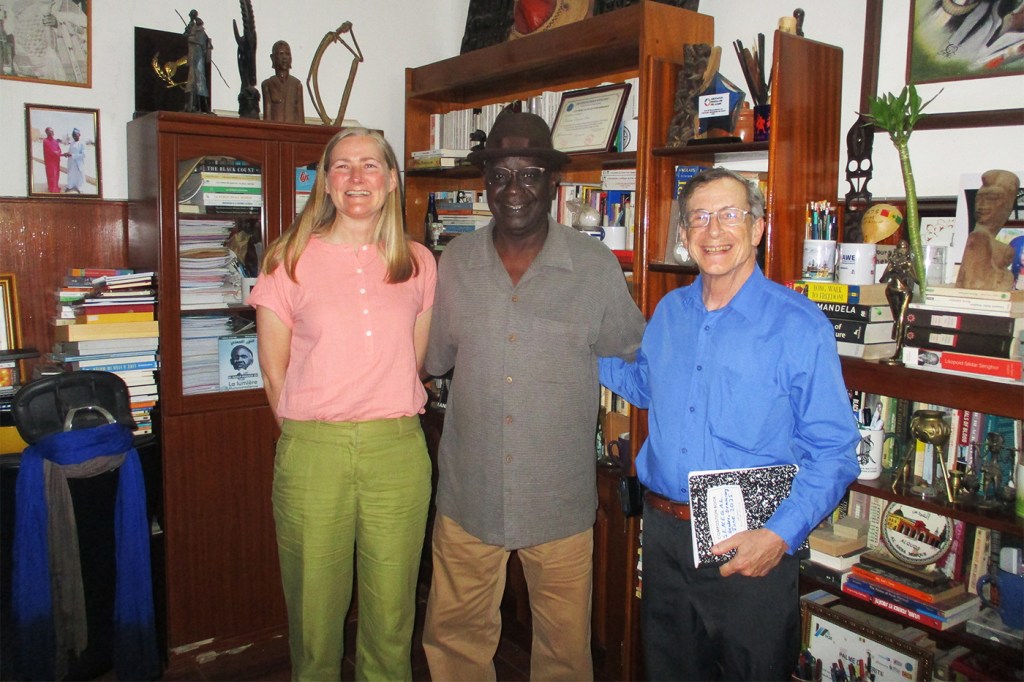How vaccines that target specific forms of cancer are showing great promise
Cancer vaccines make up the “fourth arm” of cancer-related therapies — an alternative to surgery, chemotherapy and radiation that experts say could be beneficial because of the added immune system support.

One of the great promises in the field of cancer immunotherapy is the emergence of cancer vaccines. Unlike traditional vaccines that are tailored to infectious diseases, cancer vaccines work by teaching the immune system to recognize and respond to cancer cells, which often elude the body’s natural defenses and remain persistent even after surgeries and other interventions.
Now, a new treatment for two of the most deadly and hard-to-treat cancers could be coming in the form of a vaccine. Currently in testing, the vaccine is showing early promise in potentially being able to stop pancreatic and colorectal cancer from reemerging in patients with either disease.
Editor’s Picks
The vaccine — which targets a specific gene mutation prominent in pancreatic and colon cancer, among other types, and which was shown to prompt a T cell response — was also shown to be safe.
While the study is still in the early stages, the results are encouraging, says Mansoor Amiji, Northeastern distinguished professor in the School of Pharmacy and Pharmaceutical Sciences.
Amiji spoke to Northeastern Global News about the promise of cancer vaccines, and some of the challenges of getting them approved and into the arms of those who need them. Amiji, who runs a lab that focuses on research related to problems in cancer, inflammation, cardiovascular diseases and infectious diseases, says his lab has collaborated with Kenneth Anderson at Dana-Farber Cancer Institute to develop vaccines for multiple myeloma, a form of blood cancer that originates in bone marrow.
Cancer vaccines make up the “fourth arm” of cancer-related therapies — an alternative to surgery, chemotherapy and radiation that experts say could be beneficial because of the added immune system support, Amiji says.
His comments have been edited for brevity and clarity.

It’s not every day you hear about vaccines that can help prevent cancer. Most of us are probably only familiar with the HPV vaccine, which has been shown to help prevent cervical cancer. What can you tell us about the progress made in recent years to develop other cancer vaccines?
These vaccines come under the class of what I call immuno-oncology agents. Right now we do have, as you correctly alluded to, the HPV vaccine for cervical cancer as well as other HPV-related cancers. We’ve also had, which is not as prominent right now, vaccines to protect against prostate cancer as well; but those weren’t really that effective.
The idea of cancer vaccines is not new. Of course, we are familiar with vaccines for infectious diseases, and generally we have a very comfortable understanding of how these vaccines are meant to protect us from getting infectious diseases. In the context of cancer, it’s actually the treatment of cancer that we’re talking about. So it’s the idea of these vaccines being able to prime your immune system to go and attack already formed tumors.
There are cancer mRNA vaccines also in clinical trials right now. Moderna is working with Merck specifically in the context of melanoma, and they are creating an mRNA vaccine that is used together with another of Merck’s product’s called Keytruda in an effort to increase the efficacy of treatment of melanoma, especially metastatic melanoma. A lot is happening, including the work we are doing in my lab and, of course, this new study. So clearly there is a lot of interest right now in this area.
How might these vaccines, in theory, trump other existing treatments for these — and other — types of cancers?
All of these immunotherapeutics are the fourth arm, as I call it, in cancer treatment. We have surgery, we have chemotherapy, we have radiation, and immunotherapy, or immuno-oncology, is this fourth category. The traditional approach with cancer was always to make drugs that can go in and actually kill cancer cells. Now the mindset is slightly different because, although there are very effective chemo drugs out there, they can have a lot of negative side effects, as you know. Chemotherapy can be very difficult because the toxicities can be overwhelming; and in the case of relapse, you have to find newer modalities, newer drugs or cocktails of drugs, or keep increasing the doses, and that’s what causes the toxicity burden, especially with chemotherapy.
What we are seeing in the way of these immunotherapeutics is: let’s see if we can tackle it from the side of our defenses. It’s a much more defensive strategy as opposed to offensive strategy, which is obviously the whole point in vaccine development.
I think this is a field that really is blossoming, and I hope to see some of these examples in the clinic in the near future.
What do you make of the results of this study?
This study is interesting for many reasons. For one, it’s a phase one study, so it’s really a feasibility study at this point in a very small number of patients, 25 patients total. They designed these vaccines to basically go into the lymph nodes. The cells in the lymphatic system are meant to basically protect us against infection — against any sort of a challenge, really. And these lymph nodes are very rich in immune cells. What these researchers are trying to ask is: can we get these vaccines to where the immune cells are, and subsequently help to prime these immune cells to create a much more robust immune response?
The challenge with cancer generally — especially in pancreatic and in colorectal cancer — is that the tumors are very resistant to immunotherapy. As we know from the data, almost 100% of the patients who are diagnosed with pancreatic cancer die of the disease in five years. But in those patients who could benefit from surgery — and it’s a very small cohort; most of the patients with such cancer are identified at an advanced stage — there could be hope for these vaccines. Typically patients go through surgery and then the tumor comes back after a few years. What the authors of this study show is that this vaccine may be useful after they have had surgery, working to protect from recurrence or relapse of the disease.
What are some of the barriers to getting these cancer vaccines online and making them widely available?
The cost is significant for a lot of these types of therapies, especially when you look at gene therapy, for example. With gene editing, you can almost promise a cure as opposed to just treating a disease, but the cost gets to be overwhelming. There’s an example of a drug that uses gene therapy to treat a very rare form of blindness in children who are born with a particular mutation in their eye. This drug, called Luxturna, can cost up to $800,000 per treatment.
Thankfully in the U.S., insurance programs cover these kinds of treatments; but in other parts of the world — how do you make them affordable? There’s a huge debate happening in many parts of the world about democratizing genetic therapy. Could we make it less expensive? India is at the forefront of some of these efforts. After COVID-19, they realized that they were very good at making traditional vaccines in India, but not mRNA vaccines. Just as certain companies in India were very effective in treating HIV — basically reducing the price of HIV drugs from several hundred dollars down to a dollar or less — could we get these very important treatments into places where they are most needed?
This discussion is happening, but here in the U.S. there is more emphasis on innovation and coming up with these very effective technologies and solutions than there is on prices. In the end, this is a bigger challenge for many developing nations — in places where you don’t have the luxury of insurance paying for it.
Health
-
 Parasitic diseases researcher talks ‘flesh-eating’ screwworm infection after first confirmed human case in US
Parasitic diseases researcher talks ‘flesh-eating’ screwworm infection after first confirmed human case in US -
 Millions of people have macular degeneration. Could this training model help restore their sight?
Millions of people have macular degeneration. Could this training model help restore their sight? -
 What is the potentially deadly flesh-eating bacteria and why can infections be so hard to treat?
What is the potentially deadly flesh-eating bacteria and why can infections be so hard to treat?








